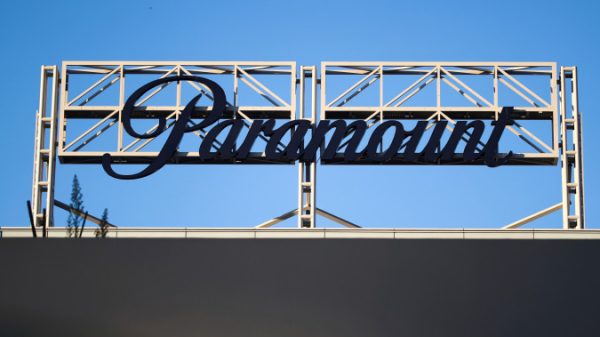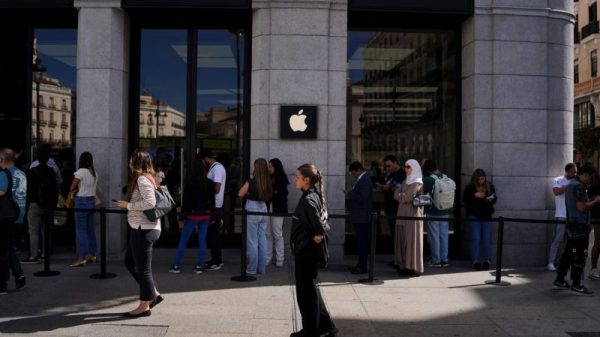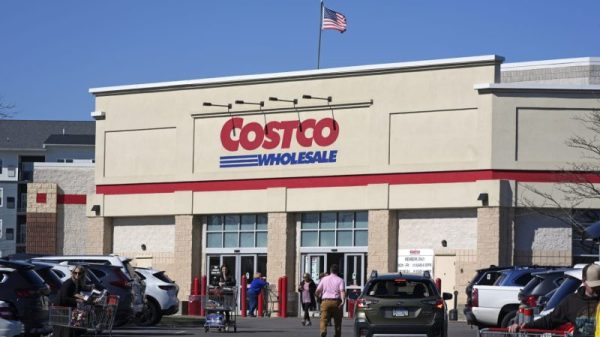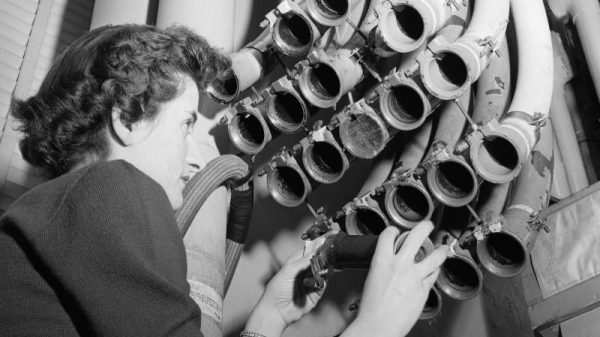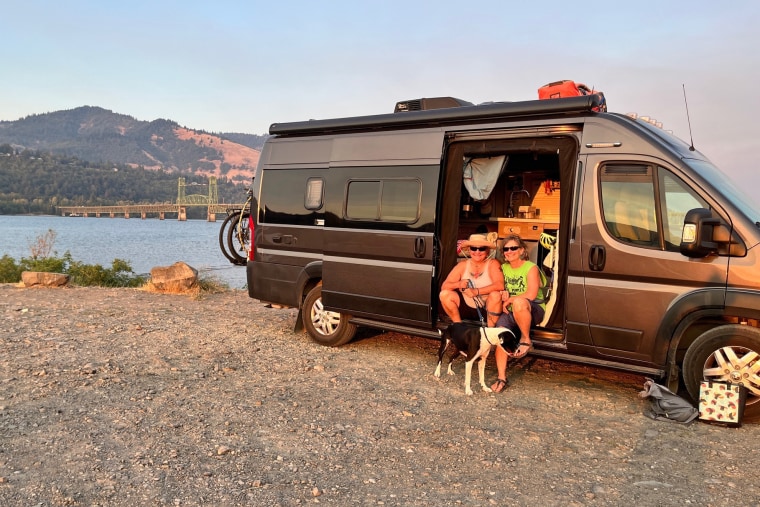What makes a happy camper this summer? S’mores, sing-alongs and — lately — streaming.
The pandemic nudged millions of people toward outdoorsy trips and experiences, and many are now hooked. But they’re increasingly demanding a decent Wi-Fi connection wherever they pitch their tents or park their RVs, and campsites are providing it.
Wi-Fi at campgrounds has become “the fourth utility behind water, sewer and electric,” said Tim Rout, founder and chief solutions officer at AccessParks, a San Diego-based broadband provider for RV parks and campgrounds.
“Six or seven years ago it was a ‘nice to have’ service so people could load their email or check their bank account,” said Rout. “Now people expect the same quality of service in RV parks that they get at home.”
About 40% of campers say Wi-Fi availability influences where they decide to camp, said David Basler, chief strategy officer for the Outdoor Hospitality Industry trade group. “Generationally, this increases to 65% in Gen Z and millennials and 45% in Gen X campers,” he said.
Now people expect the same quality of service in RV parks that they get at home.
AccessParks Founder Tim Rout
Searches for Wi-Fi-equipped U.S. properties on the campsite booking platform Hipcamp are up 110% year over year, according to founder and CEO Alyssa Ravasio, who said the number of such sites grew by 30% over the past year. Most Hipcamp hosts that provide Wi-Fi don’t charge guests extra for it, Ravasio added.
Wi-Fi is now offered at 82% of U.S. campsites, OHI estimates, slightly ahead of laundry and even shower facilities. It was the most commonly provided amenity last year among privately operated camping properties surveyed recently by The Dyrt. The camping information app found Wi-Fi being added at a faster rate (nearly 16% of campsites added it from 2022 to 2023) than pickleball courts (12%), dog parks or kayaks and canoes (each at 10%).
“Good, solid Wi-Fi at the campsite is the No. 1 priority,” said Catherine Stifter, 67, citing her wife’s love of movies and streaming services.
But Stifter needs a good connection, too. The couple lives and travels in their van full time, and when Stifter, a fitness instructor, leads her twice-weekly online qigong practice group, reliable service is a must-have.
Catherine Stifter and her wife live and work from their van, making campsite Wi-Fi a priority.Courtesy Catherine Stifter
When it isn’t available, she said, “I might end up using the signal up at the lodge.”
The Dyrt found 29% of campers worked while camping last year, up from less than 24% in 2022 and 2021, even as more employers mandated a return to in-person work. Some campers may have been “quiet vacationing” — working from a remote destination rather than taking off to fully unplug.
Rout said AccessParks’ business was already growing before the pandemic. “But since more people flocked to the outdoors and RV sales accelerated, there is a younger, more professional demographic in campgrounds — more families, more Zoom calls with work, distance learning, etc.,” he said. “Since then, our growth has dramatically increased due to the demand for fast broadband Wi-Fi.”
At least one Montana campground relies on Wi-Fi for a camera system that monitors the area for grizzly bears, Rout added.
Marley Behnke said Wi-Fi was already installed at the campground in Grayling, Michigan, that she bought in late 2022. In addition to letting guests stay connected and share details from their adventures with loved ones, “there are apps that provide real-time updates for activities, facilitate food delivery, organize scavenger hunts and enable interactive games,” she said.
The campground, which is part of the Jellystone Park network, currently pays about $700 a month for Wi-Fi. Behnke said she’s looking to add fiber service by this fall.
Wiring a campsite for high-speed broadband comes with challenges like ensuring the signal can make its way through uneven terrain, trees and metal RV bodies and withstand extreme weather. Depending on property size and the type of service offered, installation might run anywhere from $50,000 to $500,000, Rout said, though campgrounds can typically recoup the expense by raising prices by little more than $1 a night.
One factor that could be driving demand for Wi-Fi in the wilderness: the influx of newbie and higher-end campers who may prefer a less rustic experience.
I’ve got kids who have not grown up camping consistently, so I definitely need a posher camping experience.
Sommer Nyte, 46, Bellingham, Wash.
The share of first-time and less-experienced campers hit 32% this year, down from a peak of 41% in 2022 but far higher than pre-pandemic — when that rate didn’t surpass 18% from 2015 to 2019, according to the campground operator KOA.
While middle- and lower-income travelers are especially keen to camp this summer, Deloitte researchers say, camping demand is up 7% in a year when high-income travelers comprise a greater share of this season’s leisure travelers overall. The “glamping” (glamorous camping) sector is forecast to grow by more than 15% each year through 2029, according to Arizton market research.
“I’ve got kids who have not grown up camping consistently, so I definitely need a posher camping experience,” said Sommer Nyte, 46, a Bellingham, Washington, realtor who recently bought a new pop-up tent trailer. Wi-Fi is on her wish list alongside pools, boat rentals and programming for families with children.
Internet connectivity isn’t sweeping every campsite, though. It’s available at 65% of those listed on Airbnb, a spokesperson said, up only modestly from 61% in 2019. That’s despite sharper increases in bookings of camping vehicles (22% higher than last summer) and camping properties (up 10%).
However, Hipcamp’s Ravasio noted, “there’s an increasing number of campers — especially with RVs, adventure vehicles and overlanding rigs — that are equipped with their own devices to be self-sufficient for Wi-Fi, like Starlink or hotspots.”
And then there are those who still go camping to get away from it all.
“There used to be a curtain of isolation between campers and the outside world,” said John Stark, a 73-year-old retired broadcaster from Tucson who just returned from camping at Bandelier National Monument in New Mexico — which doesn’t offer public Wi-Fi. “Now campgrounds are extensions of our living rooms.”
“I blame cell towers,” he added.
One way analog campers like Stark can stay offline is to stick to publicly operated campgrounds. While the RV Industry Association found about 60% of private sites offered Wi-Fi as of 2022, only 3% of public ones did.






